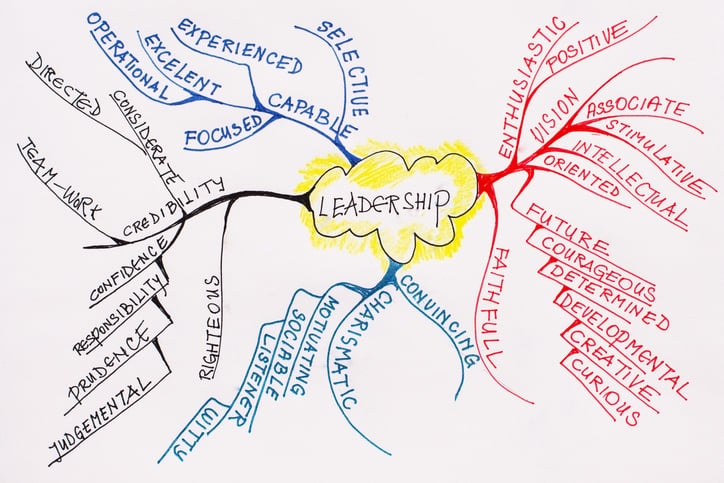This article is part of the NextGen summit on business transformation. Pierre Sinodinos, CEO of Aneo, had the pleasure of participating in it on November 26th and 27th last year.
It is one of the 149 proposals resulting from the work of the Citizens' Convention for Climate and is advocated by numerous NGOs. The proposal to "effectively and operatively ban advertising for products with higher greenhouse gas emissions on all advertising media" is gaining more and more prominence in public debate.
Essential or ineffective, is regulating the advertising sector a lever at our disposal to consume in a reasoned manner and reduce our ecological footprint?
My answer is yes.
Why regulate advertising?
1) Rationalizing our buying behaviors
Today, advertising is omnipresent on our computer screens, social media, billboards, or television channels... Advertising is part of our daily lives. In 2016, 88% of French people believed that advertising played a role in children's choices when buying toys and entertainment products. (1)
Advertising uses various influence techniques or cognitive biases that appeal to conscious and unconscious phenomena in individuals. These biases play on both our rationality and, more importantly, on a range of emotional factors. This makes it difficult to evaluate its real impact.
Today, advertising uses a variety of discourse types and influence mechanisms to induce our buying behaviors. It has become almost impossible to act with reason and calculation when consuming a product: "the product becomes less important than the discourse produced about it" (2).
Alongside this phenomenon, the development of e-commerce, influencer marketing, and social networks has greatly simplified our purchasing journeys. Gone is the rational homo economicus; today's consumer is a being of immediate desires; an almost infantile impulse to consume has replaced rational analysis of the benefits of a purchase.
Regulation seems to me to be a first step towards raising awareness of our buying behaviors and reintroducing rationality where emotion seems to have supplanted it. Finally, this would allow us to reclaim our "available brain time".
2) Aligning advertising discourse with our values
Advertising plays an essential role in defining our societal values. It promotes "products that incorporate societal ideals related to individuals' aspirations (...) that have only an extremely tenuous link with their functional benefits"(3). Because it is widely disseminated, the discourse conveyed by advertising becomes normative. Indeed, it contributes to defining our needs, ideals, and aspirations. It stereotypes our daily lives and imposes itself as our reference.
In 2019, in a pre-Covid19 context, the environment became the primary concern of the French, even surpassing purchasing power (4). This growing concern for environmental preservation is an underlying trend confirmed at all levels: increased use of clean transportation modes, unprecedented breakthroughs of environmentalists in the last municipal elections, growing commitment of brands to CSR or sustainable development policies...
However, the advertising market continues to favor polluting products. Let's take a concrete example: SUVs. These vehicles saw a 16% increase in advertising budgets in 2020 (5). Yet, according to the International Energy Agency (IEA), these vehicles represent the second factor contributing to the increase in global CO2 emissions since 2010, after the energy sector but ahead of aviation or heavy trucks. In 2018, SUVs accounted for nearly 36.5% of vehicles sold in France, steadily increasing for several years. (6).
I believe it is time to ensure that the power of advertising is used in the service of our society's values. The mechanism of advertising regulation is, in my opinion, an opportunity to align our values with advertising discourse, to ensure that companies and capitalism in general are consistent with our societal project, with our common commitment, especially in terms of ecology.
3) Banning advertising for less and better consumption
According to the Greenflex barometer of responsible consumption, in 2019, 88% of French people believe that companies encourage overconsumption through advertising by offering more and more novelties (7).
The development of Fast Fashion, Black Friday, and sales are at the heart of advertising expression. As more and more voices rise against this race to overconsumption, towards zero waste and more frugal lifestyles, advertising increasingly encourages us to possess what is new, what will satisfy an apparently infinite need. Therefore, the regulation of the sector is based on a simple logic: reduce marketing exposure to environmentally harmful products to reduce the desire to buy them.
Where do we stand today?
1) Self-regulation of the sector that works poorly
The advertising sector largely operates on a self-regulation mechanism today. The Professional Advertising Regulation Authority (ARPP) is a professional body whose mission is "to work for fair, truthful, healthy, and respectful advertising" (8). However, on several occasions, this body has not proven its effectiveness. The departure of the France Nature Environnement association from the joint advertising council in 2020, claiming that advertising self-regulation was a failure, is evidence of this. In 2018, ADEME had already criticized a decision by the advertising ethics jury for not condemning an advertising campaign proposed by Cdiscount that encouraged overconsumption.
2) A bill: the Evin law for the climate
Defended by Deputy Mathieu Orphelin, the bill "establishing initial measures to make advertising a lever for ecological transition and sobriety and to reduce incentives for overconsumption" (9) has not yet been accepted by the Sustainable Development Committee of the National Assembly. Yet this proposal, renamed the "Evin Law of Climate" in reference to the 1991 Evin Law which prohibits tobacco advertising and regulates alcohol advertising, also proposes to gradually ban all advertising for products and services with a high negative impact on the environment. All while ensuring not to infringe on freedom of expression and entrepreneurship.
This ban would apply to all forms of advertising, including online or email, and would have a binding effect similar to the Evin law, which promises financial penalties for offenders.
3) An information and regulation instrument: the CO₂ score
To define this list of environmentally harmful products and services, the Citizens' Convention for Climate proposes to implement a CO2 Score. Like the Nutri-score, this tool would easily identify polluting products. The CO2 score would be developed by a public body "based on existing standards and/or the carbon footprint of ADEME," the ecological transition agency. It must take into account the entire life cycle of a product or service and integrate direct and indirect emissions. Thus, each stage must be evaluated: "manufacturing / extraction and transport of raw materials, manufacturing, storage, transport to the distribution location, distribution, consumption, to its treatment as waste or recycling (10).
The implementation of such a measure would both objectively and explicitly assess the environmental impact of consumed goods, define those to be banned from our screens, and inform and empower consumers.
This proposal meets consumers' demand for more transparency about the products they consume. The use of applications like Yuka (which rates and informs about the composition of food and cosmetic products) which has no less than 10.5 million users in France, can testify to this. So when will we have an environmental Yuka?
4) What would be the risks of such a measure?
Banning advertising for polluting products risks placing too heavy a burden on the advertising sector. On the contrary, it represents a tremendous opportunity to pivot the sector to become a driving force in ecological transition. This pivot is already underway. Indeed, the TF1 television channel has decided to launch a program called "EcoRespons'Ad" soon. It is a specific advertising offer conceived with ADEME. Dedicated spaces to highlight responsible advertisements during prime time. We can also mention the startup BackMarket, specialized in the refurbishment of tech products. For example, the latter uses advertising to promote the circular economy.
This measure will penalize industrialists and producers. Regulation is a gradual and transitional means of encouraging these companies to convert to low-impact products. Industrialists have already understood this, and changes are underway. Indeed, manufacturers' advertising investments in so-called "clean" vehicles have significantly increased in the first eight months of 2020. They account for 23% of the global budget, compared to only 9% in 2019 (12).
The prohibition, based on the principle of punitive ecology, is not effective. This proposal must obviously be considered as a measure in a more complete arsenal (taxation of polluting products, support for innovation, support for professional conversion, etc.).
We are at a crossroads between a timid ecological policy with mixed results and an ecology of rupture that proposes radical measures as incentives as well as constraints to collectively achieve our commitment. So, do we really have a choice?
Sources
(1) https://fr.statista.com/statistiques/647363/influence-publicite-choix-consommation-enfants-jeunesse-avis-sitatuin-familiale-france/
(2) « La faute à la pub ? », La Cause du Désir, vol. 88, no. 3, 2014, pp. 65-69.
(3) Heilbrunn B., 2007, La Marque, Paris, Presses universitaires de France, 2010
(4) Sondage Sopra Steria 2019 - https://www.lepoint.fr/environnement/l-environnement-premiere-preoccupation-des-francais-16-09-2019-2336036_1927.php
(5) Etude Kantas - https://pro.largus.fr/actualites/publicite-automobile-les-vehicules-propres-toujours-plus-presents-10430405.html
(6) Plus de véhicules électriques, trop de SUV Faits et chiffres tirés de ADEME & Vous Le Mag n° 126
(7) Baromètre GreenFlex - https://www.greenflex.com/communique-de-presse/barometre-consommation-responsable-2019-sortons-mythe-croissance-infinie/
(8) https://www.arpp.org/qui-sommes-nous/roles-et-missions/
9) Proposition de loi actant de premières mesures pour faire de la publicité un levier au service de la transition écologique et de la sobriété et pour réduire les incitations à la surconsommation. - http://www.assemblee-nationale.fr/dyn/15/textes/l15b3289_proposition-loi
(10) Consommation : le futur indicateur « score carbone » en cinq questions, Neïla Beyler - https://www.lesechos.fr/politique-societe/societe/consommation-le-futur-indicateur-score-carbone-en-cinq-questions-1255908
(11) Etude Kantas - https://pro.largus.fr/actualites/publicite-automobile-les-vehicules-propres-toujours-plus-presents-10430405.html
(12) Convention Citoyenne pour le climat, Réguler la publicité pour réduire les incitations à consommation - https://propositions.conventioncitoyennepourleclimat.fr/objectif/reguler-la-publicite-pour-reduire-les-incitations-a-la-surconsommation/




